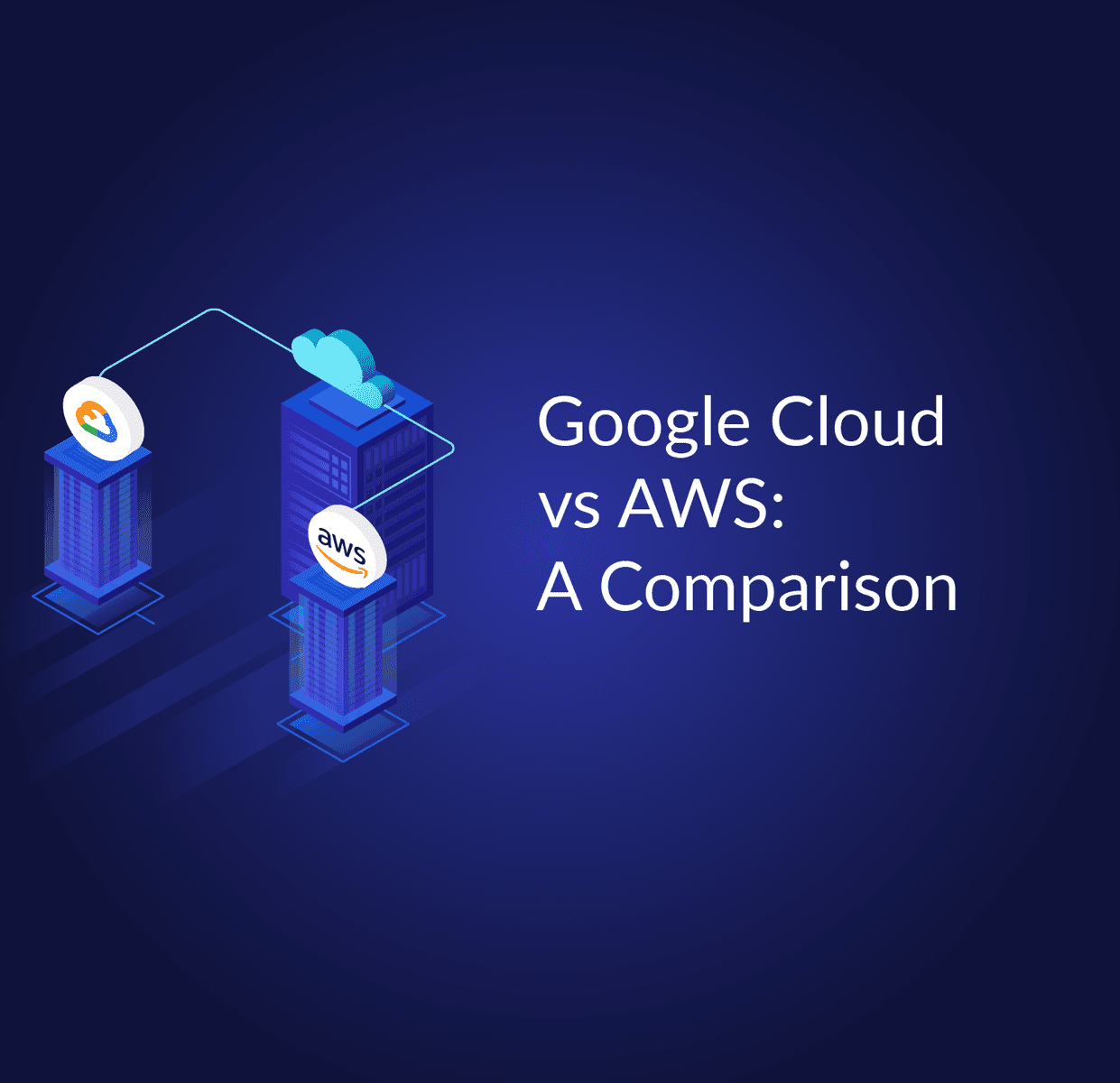With the developing IT industry, companies are continually making their move into cloud computing. It may be either using an individual cloud service or migrating the entire infrastructure into a cloud ecosystem, you will seek the added benefits of cloud technologies. Cloud computing offers improvement in scalability, security, and flexibility to reductions in cost and environmental impact. The cloud ecosystem become a complex, ever-expanding system of providers, technologies, products, and services. In any industry, a handful of companies rise above the rest to become market leaders. Three names that come on top of the list include Google Cloud Platform, Amazon Web Services, and Microsoft Azure.
In order to utilize the Google Cloud Platform, you must be aware of the benefit and importance of holding Google cloud certification. These cloud giants are pet names in the technology spaces. Here we will focus on Google Cloud Platform (CGP) and AWS. Deciding on which cloud platform is best, AWS is one of the best of its kind which finds its way into the conversation. The Google cloud platform is another excellent product of Google.
Let us check a few differences between the same:

-
GCP vs AWS: Establishment
Amazon web services is a subsidiary of Amazon that offers on-demand cloud computing platforms to individuals, companies, and the government. Amazon has become one of the first major cloud providers and it even has more experience in the cloud domain. AWS was launched with service offerings i.e. Simple Storage Service, Elastic Compute cloud that is formally joined AWS Cloud computing services offering.
Google Cloud Platform is offered by Google which is a suite of cloud computing services. This runs on the same infrastructure that involves the use of Google for its end-user products. With the launch of Amazon Web services, Google has put this data center expertise to use and even launched a suite of cloud computing services. Google cloud is making for the lost time with reliable and effective services.
-
GCP vs AWS: Availability Zones
Every organization looks for the ability to offer robust services with minimal possibility of outages. Different regions and availability zones impact the availability zone which affects the top factors to keep in mind while choosing cloud providers. AWS has a significant amount of time which expands the infrastructure. AWS is also hosting in different locations with 21 geographical regions. AWS has 66 availability zones with 12 more on their way.
GCP has also made its availability in more than 20 regions with 3 more on its way and its has 61 zones worldwide.
-
GCP vs AWS: Market Share & Growth Rate
AWS is leading with more than 30 percent of the public market share. GCP is tremendously making its progress at an alarming rate which is quickly reaching 100% and it is lagging behind AWS in terms of market share. GCP is lagging behind AWS. GCP is gaining a lot on AWS in terms of market share but it is not far behind the race.
-
GCP vs AWS: Services
AWS covers around 200 services whereas GCP has more than 60 services. The compute services of AWS include amazon elastic compute cloud, AWS elastic beanstalk, Amazon elastic compute cloud container services, etc. GCP services include Google Compute Engine, Google app engine, Google Kubernetes engine, Google cloud functions.
AWS offers more services than GCP but even GCP includes all necessary service offerings which are required for running any business.
-
GCP vs AWS: Security
Security acts as one of the most important aspects which differentiate booths. The parameters for which look one must choose a cloud service provider include controls, policies, processes, technologies. AWS & GCP provides cutting-edge cloud security. The differentiation is mentioned here:
Security of cloud: this helps in protecting by default via security capabilities that are built into the underlying infrastructure of the cloud platform.
Security in the cloud: this even allows one to enhance the protection of apps and data via additional security products.
Security anywhere: this even allows one in protecting assets irrespective of location by expanding security capabilities beyond cloud platforms with protocols.
-
GCP vs AWS: Support
AWS and GCP have extensive libraries of technical documentation. Cloud providers even have thriving cloud communities which are packed with many cloud experts who are willing to share their expertise and knowledge. You should even witness a situation where you are required for having expertise and require help in deciding which services to choose.
Other than the difference, let us even check salient features which make AWS & GCP out of the box for the crowd.

AWS features include:
- Centralized billing and management feature
- Hybrid capabilities are the best in market
- The cost of ownership is not pocket pinching which is compared to private servers.
GCP features include:
- Simple UI makes it easier to get along with Google cloud.
- Network access is wide
- on-demand self-service facility
- More language and OS support is available
Benefits of AWS:
- Provides easy deployment options for applications.
- Enhanced security with physical security layers.
- Time is required for deployment of the new version
- AWS is the perfect option for the project if you require computing power.
- Helps in enhancing the growth of application development.
- Cost-effective service which helps in paying only when consumed without any contracts.
Benefits of GCP:
- Provides high productivity with rapid access.
- This helps the employee to work from anywhere
- Cost-effective with long durational discounts
- This even offers instance and payment configuration
- Future proof infrastructure
- Powerful data analytics
- Data and ML products.
Conclusion
AWS vs GCP is a tight fight which one is a reliable one as both these are equipped for catering to the needs of customers with complete satisfaction. Different factors such as budgets, features, technical competency of the team, features make help in deciding which cloud service is best. With the help of this feature, it becomes easy to understand the requirement and helps in making a prudent choice.
The goal of choosing between the two is to find a clear platform that offers an extensive range of cloud products and services. This even offers significant benefits with on-premises deployment that comes to scalability, performance, security, and cost.